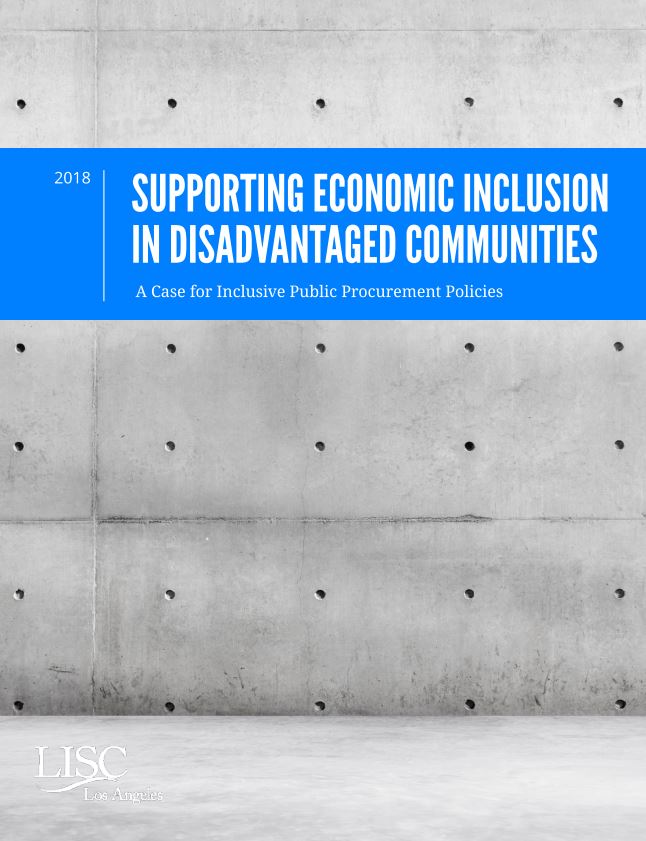Supporting Economic Inclusion in Disadvantaged Communities
The city of Los Angeles procures eight billion dollars of commodities, construction and professional services annually. Currently, only 20 percent of those contracts are awarded to local contractors in the city, where 70 percent of the population identifies as a racial minority, and far fewer are awarded to businesses located in historically underserved neighborhoods. When one considers how effectively business ownership can contribute to narrowing the racial wealth gap, more inclusive distribution of government contracts has significant potential to promote equitable growth in LA.
This report from LISC LA and the Milken Institute’s Partnership for Lending in Underserved Markets (PLUM) Working Group outlines strategies and best practices to support a more inclusive local procurement environment in the city and county of Los Angeles. While the report focuses on the Los Angeles market, the lessons learned can inform other markets seeking to leverage public procurement policies in support of their equitable development strategies.
Specifically, the guide highlights existing challenges within the current business ecosystem that make it difficult for minority-owned and women-owned businesses (MWBEs) to apply and compete for government contracts. These include technical challenges, such as complex processes that make applying confusing, and poor data and metrics on the current demographic makeup of contractors. Additionally, the guide makes recommendations to overcome systematic issues faced by entrepreneurs of color, like difficulty accessing capital and credit. The report also notes the need for local government’s commitment to overcoming these systemic barriers if the goal of an inclusive LA economy will be realized.
